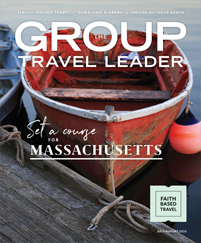 Courtesy Dodge City CVB
Courtesy Dodge City CVB
When Cruise West suspended operations on Sept. 18 after decades in business, it left more than just its ranks of empty ships, unemployed workers and unpaid vendors — it also left hundreds of passengers who had paid for cruises that they would never take.
Unlike many consumer transactions, in which buyers pay after a merchant provides a good or service, the vast majority of travel products are bought and paid for before the trips take place.
Although travelers have become accustomed to paying for flights, tours and cruises before their departure, events such as the closures of Cruise West and Mexicana Airlines this fall raise a frightening specter: What happens to customers who have prepaid for a trip when their carrier goes out of business?
The answer is a complicated one, involving federal and state laws, travel insurance policies, professional association protection plans, credit card companies and other factors. But by exercising due diligence before booking a tour and taking precautions to cover their travelers in case of trouble, group leaders can make sure tumultuous business circumstances won’t leave their busloads of customers stranded and empty-handed.
A patchwork of coverage
Cruise West suspended operations with millions of dollars worth of future travel on the books and no money to reimburse customers who had prepaid. Most will be able to recover their money through a patchwork of coverage provided by the private and public sectors.
Customers who paid by credit card can dispute the charges with the credit card companies, which should credit the customers’ accounts since the services paid for were never rendered. Those who paid cash may be protected by travel insurance companies, as most third-party policies offer coverage in case a carrier ceases operation.
Some Cruise West customers not covered by travel insurance can turn next to the Federal Maritime Commission, which has a $15 million bond to protect consumers on cruises that depart from a U.S. port. Several Cruise West sailings were scheduled to originate out of foreign ports; in these cases, the Maritime Commission bond does not apply.
The last line of protection for those comes from the United States Tour Operators Association (USTOA), an organization to which Cruise West belonged until shortly before its closure. The association requires all member companies to post a $1 million bond, which is used to reimburse customers in these cases as part of the Traveler Assistance Program.
“We have no idea how many claims there will be,” said John Stachnik, president of Mayflower Tours and chairman of USTOA. “Right now we haven’t received $1 million worth of claims, but people have until the first week of December to file claims.
“Even if people got reimbursement from their credit card or the Maritime Commission, if they didn’t cover the pre- or post-tour portions of an itinerary, we’ll cover it.”
USTOA will begin reviewing the claims after the December deadline and determine how much money each customer is entitled to. If the total amount of claims exceeds the $1 million bond, customers may recover only a portion of what they spent.
“If they reach $2 million, for example, those people would receive 50 cents on the dollar,” Stachnik said.
Due diligence
Group leaders who want to protect their travelers’ trip investments have several barometers by which to measure a travel provider. USTOA, with 46 member companies representing 150 travel brands, is the last industry association to still offer a consumer protection plan, but other associations also have ethics and financial requirements that offer some degree of accountability for their members.
“You can reduce your risk using travel insurance products and making sure you’re traveling with a good reputable company that belongs to an organization,” said Peter Pantuso, president and CEO of the American Bus Association (ABA). “Belonging to an organization is not a seal of approval. But companies that are active and investing in their industry associations are doing so because they want to be at the next level and want to be active.”
Motorcoach operators joining ABA must have $5 million in liability insurance, and tour operators must have been in business for at least two years before becoming association members.
The National Tour Association (NTA) has similar standards and also requires the managers of its member companies to have a certain amount of experience in the tourism business.
Cathy Greteman, president of NTA, said that while the association is not a policing organization, it does hold members accountable for the ethical operation of their businesses.
“When something arises, we investigate it immediately,” she said. “We’ll place a call to them, let them know what has been said and allow them to try to give their side of the story. But we caution them that we fully expect suppliers to be paid and customers to be taken care of.”
Greteman said that group leaders should be careful to do due diligence on tour operators they book with, keeping an eye out for unusual payment schedules or a decline in the quality of service provided.
She also said that group leaders making travel arrangements on their own should pay close attention to their motorcoach companies, making sure that the company’s insurance is up to date, its drivers are properly licensed and its equipment is modern and well cared for.
USTOA’s Stachnik said that consumers should use common sense and be wary of travel providers that offer discounts for early payments or cash payments.
“I have no personal knowledge of anybody that is struggling out there, but 2011 could be a challenge,” he said. “So I urge the group leaders to use common sense, and don’t let emotion rule the day. If someone is promising you too much, that’s a red flag.”
For more gaming:
Gaming keeps on growing
An Iowa platinum milestone
Las Vegas and Atlantic City battle the recession












